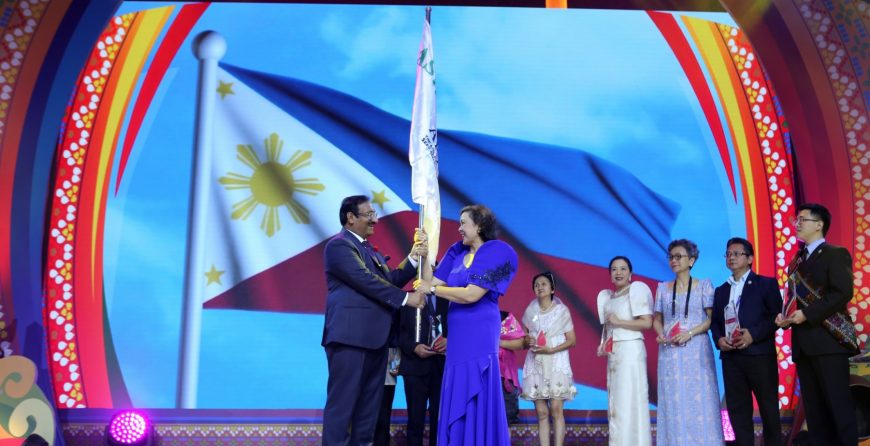16th November 2019
26th Asia Seed Congress (ASC): A Breakthrough for Pakistan’s Agriculture?
By Isra Shahid – Project Assistant at Haji Sons
An alliance of 60 countries, APSA stands at the forefront of adapting to the changing winds in the world’s agriculture.
Pakistan’s position in the global seed market became commendable with the election of Mr. Muhammad Tahir Saleemi, Managing Director at Haji Sons Group, as the first-ever Pakistani president of Asia Pacific Seed Association (APSA) in 2018.
An alliance of 60 countries, APSA stands at the forefront of adapting to the changing winds in the world’s agriculture. Each year, the organization hosts Asian Seed Congress in its member countries to address specifically the ongoing issues in seed development and trade while targeting trending topics like climate change, Intellectual Property Rights (IPRs), Plant Breeding Innovation, Phyto sanatory measures, etc. as well. With an attendance of 1200 to 1700 delegates, along with more than 2000 stakeholders spread out geographically, this 5-day event marks its precedence globally. It is a spotlight for serving the interest of every player along the food chain as it allows networking between regions, associations, and nations.
While the conference harbors many influential countries, Pakistan is gradually standing out to be one of the most important ones with the third-highest participation rate. What makes Pakistan’s case strong is having Mr. Saleemi as the president of APSA. Mr. Saleemi has been a pioneer in Pakistan’s seed industry with the vision of using technology to uplift the incomes of small Pakistani farmers. He has had the privilege of bringing greenhouse, hybrid seeds, drip irrigation, and soluble fertilizers to the farming community of Pakistan – all those inputs which promise quality yield for the farmers and safe food for the consumers. Mr. Saleemi has also introduced post-harvest hermetic technologies in Pakistan which reduce storage loss and increase the shelf life of seeds and crops. With his experience in the seed industry and his monumental efforts to solve the dilemma of a small farmer in Pakistan, better outcomes can be expected for the Pakistani members at ASC as well.
This is true for addressing the more recent crisis which flows through the veins of Pakistan’s agriculture: climate change, drought, repeated heat spells, and evolving pests and water shortage. With Special Interest Groups (SIGs) and Standing Committees at ASC, these issues can be contextualized and made more relevant to South Asian countries. These two groups specialize in different varieties of seeds to prepare study tours for farmers to learn how technology is used in fields. They also prepare position papers with specialists like policymakers who take a key part in the conference. With such exuberant activities, it will not be wrong to expect a successful future course of action and recommendations.
The benefits for Pakistan representing a global institution do not end here. A highlighted voice means a highlighted one for not just one strata of the ASC member community, that is, the farmers but also the seed enterprises: an international platform will allow them to make better trade deals given a huge exposure with 60 other nations.
It is also notable that the conference was one of the few platforms where the knowledge of hybrid seeds was dissected at large. Since then, Pakistani corporations have gained confidence over time in acquiring these varieties of seed which was even true through the time when the government of Pakistan was pushing against it. The conference in the past has also imparted the knowledge of hybrid seeds, International Property Rights (IPRs) and Plant Breeder’s Rights (PBRs) – all that is being used in agriculture today. Knowledge of IPRs and PBRS becomes essential for the producer to take credit for one’s innovation as a useful contribution to the world’s agriculture. These rights have not been successfully implemented in Pakistan due to a lack of awareness resulting in widespread piracy and theft in the past. However, with APSA and ASC, these issues are addressed and members are made aware of them so that they have a fair understanding of how to tackle them in their home country. It is due to this understanding that multinational seed companies like Monsanto approach the Pakistani market to sell their hybrid seeds.
Whether or not Pakistan’s increasing role in regional agriculture dynamics is groundbreaking remains to be seen as it leads the 26th Asian Seed Congress this month from 25th to 29th at Kuala Lumpur, Malaysia. However, we can not shy away from the progress it continues to mark with increasing participation, spokespeople and pressing attempts at reaching solutions to agricultural concerns.



 Head Office:
Head Office:  +92 42 36619881-2
+92 42 36619881-2
 +92 302 8665445-7
+92 302 8665445-7

 Mon-Sat - 9 AM until 5 PM
Mon-Sat - 9 AM until 5 PM
